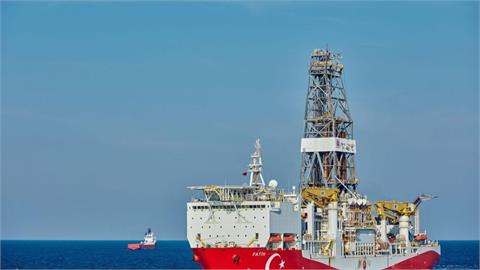Brussels will unveil its long-term energy blueprint on Wednesday. Early drafts of the plan seen by the Financial Times show the EU will pledge to "use all its foreign policy instruments to establish strategic energy partnerships" with alternative suppliers such as Azerbaijan, Turkmenistan and Algeria.
Conflict in Ukraine has triggered intense concern about the reliability of exports from Russia, which supplies almost 27 per cent of the gas that the EU uses. Maros Sefcovic, the European Commission vice-president in charge of Europe's energy agenda, emphasises the need todiversify away from Gazprom, Russia's gas export monopoly.
"I think that Europe has really got tired of each summer having a discussion of how to make it through the next winter. The world's biggest economy should not have such concerns in the 21st century," he said in an interview with the Financial Times in the run-up to Wednesday's announcements. Russia would remain a "very important supplier" for the EU but its influence would lessen, he said.
Since taking on his portfolio late last year, Mr Sefcovic has prioritised the $45bn "southern corridor" pipelines that will bring gas into southeastern Europe from the Caspian Sea region and potentially the Middle East. The final section of this network will be the Trans-Adriatic Pipeline, partly owned by BP, which will run to Italy and is due to provide Europe with 10bn cubic metres of Azeri gas by 2020.
Mr Sefcovic said the EU would throw all its political weight behind TAP to ensure work was completed by the end of 2019. Brussels has already designated the pipeline as a "project of common interest", allowing it to bypass EU competition restrictions. But Mr Sefcovic said there was far more to be done to ensure the scheme ran smoothly, adding that he had held talks with Ilham Aliyev, the Azeri president, about ways to cut red tape.
"It's very important for the investors to have political reassurance that this is a top priority and that we are ready to offer all political and regulatory assistance," he said. "You have excise duties here, immigration laws there . . . you have to show you are ready to help the business side."
Even within the EU, Brussels is having to flex its political muscle. Regional politicians in Puglia in southern Italy are trying to stop the stretch of TAP that will run through the region, citing environmental concerns. Insiders say the European Commission is leaning on Matteo Renzi, the Italian prime minister, to use his leverage in Rome to ensure it goes ahead.
Mr Sefcovic admitted that the EU had made mistakes with its previous attempts to build a southern corridor. Plans for the Nabucco pipeline stretching from eastern Turkey to Austria were scrapped last year amid doubts that there would be enough gas to make it commercially viable. With a capacity of 31bn cubic metres, Nabucco had been counting on supplies from Azerbaijan, Turkmenistan, Iraq and Iran.
"We have learnt the lessons from Nabucco. This project failed because there was not enough political support. We simply believed that this project would happen just because of the business interests," he said.
The focus on southeastern Europe has been amplified by Russia's cancellation of its $50bn South Stream pipeline, which was intended to supply Europe with 63bn cubic metres of gas. While the TAP project will only supply roughly 2 per cent of European demand, the project's executives say capacity can be lifted to 20bn cm after 2020.
To secure those increased volumes, Mr Sefcovic has embarked on a courtship of Turkmenistan, a reclusive and repressive state that holds the world's fourth-biggest gas reserves. He met the Turkmen ambassador to Brussels on Monday with a view to signing a preliminary agreement soon, with the environmental and legal groundwork for a deal already laid.
The tabular content relating to this article is not available to view. Apologies in advance for the inconvenience caused.
The biggest obstacle to any deals from the Caspian is Russia, which insists that countries can only export from the region if all the other littoral states agree, effectively giving Moscow a veto.Mr Sefcovic said he believed it would still be possible to find a "technical and legal" framework for Turkmen exports to the EU.
The EU's race against China to secure Turkmen gas gathered pace this month when Gazprom announced that it was slashing its imports from Turkmenistan, forcing Ashgabat to find new export markets. With unusual candour, a state oil institute in Turkmenistan criticised Russia as an "unreliable partner".
For Mr Sefcovic, this offered a an opportunity. "As much as we want to diversify our energy sources, I think the countries around the Caspian equally want to diversify their [export] routes," he said.
"There is a common interest. Europe is a very solid customer, a big one, pays on time, in hard currency, doesn't play any tricks, any games. I think that is what is attractive."
(Financial Times)



